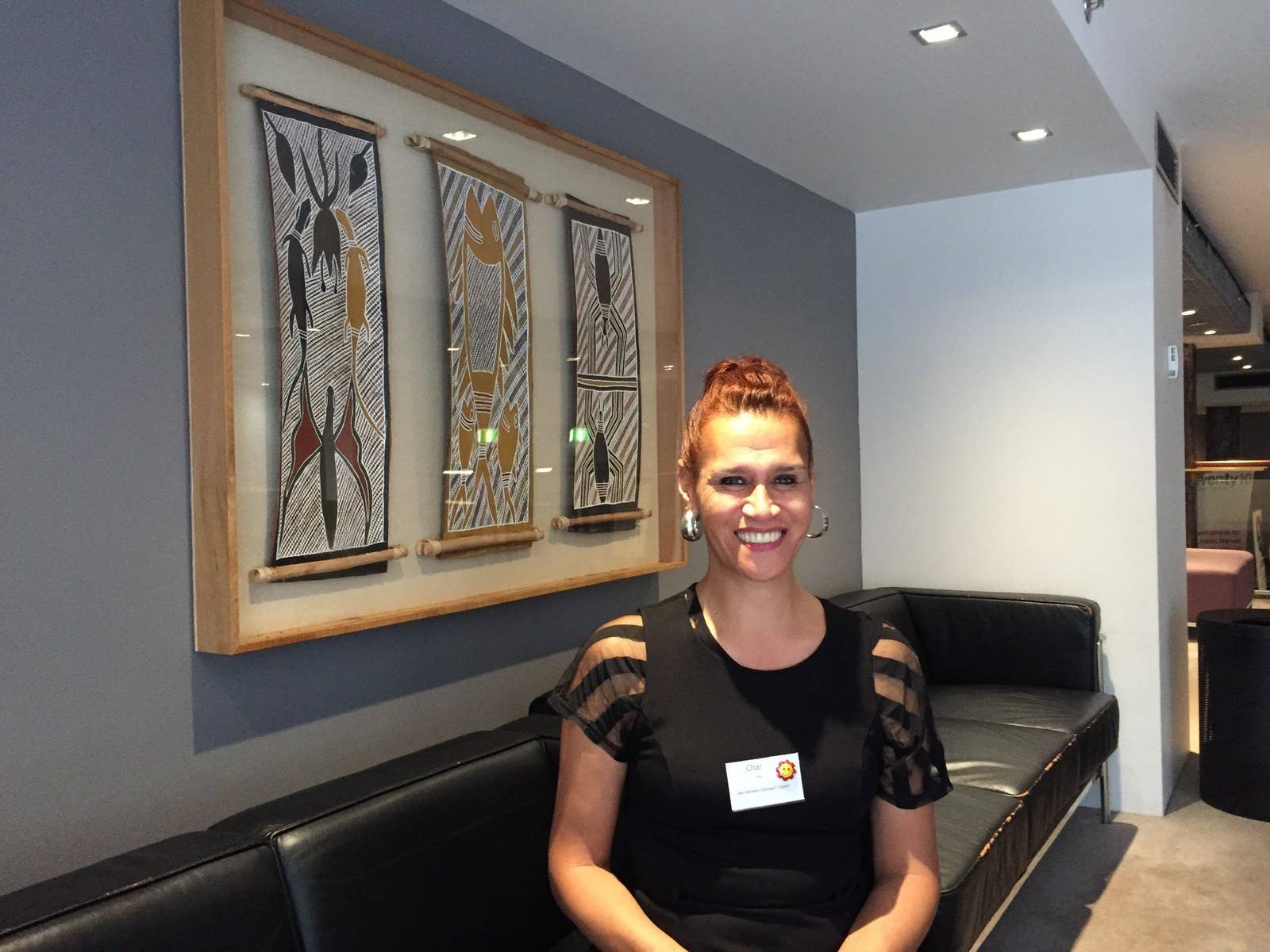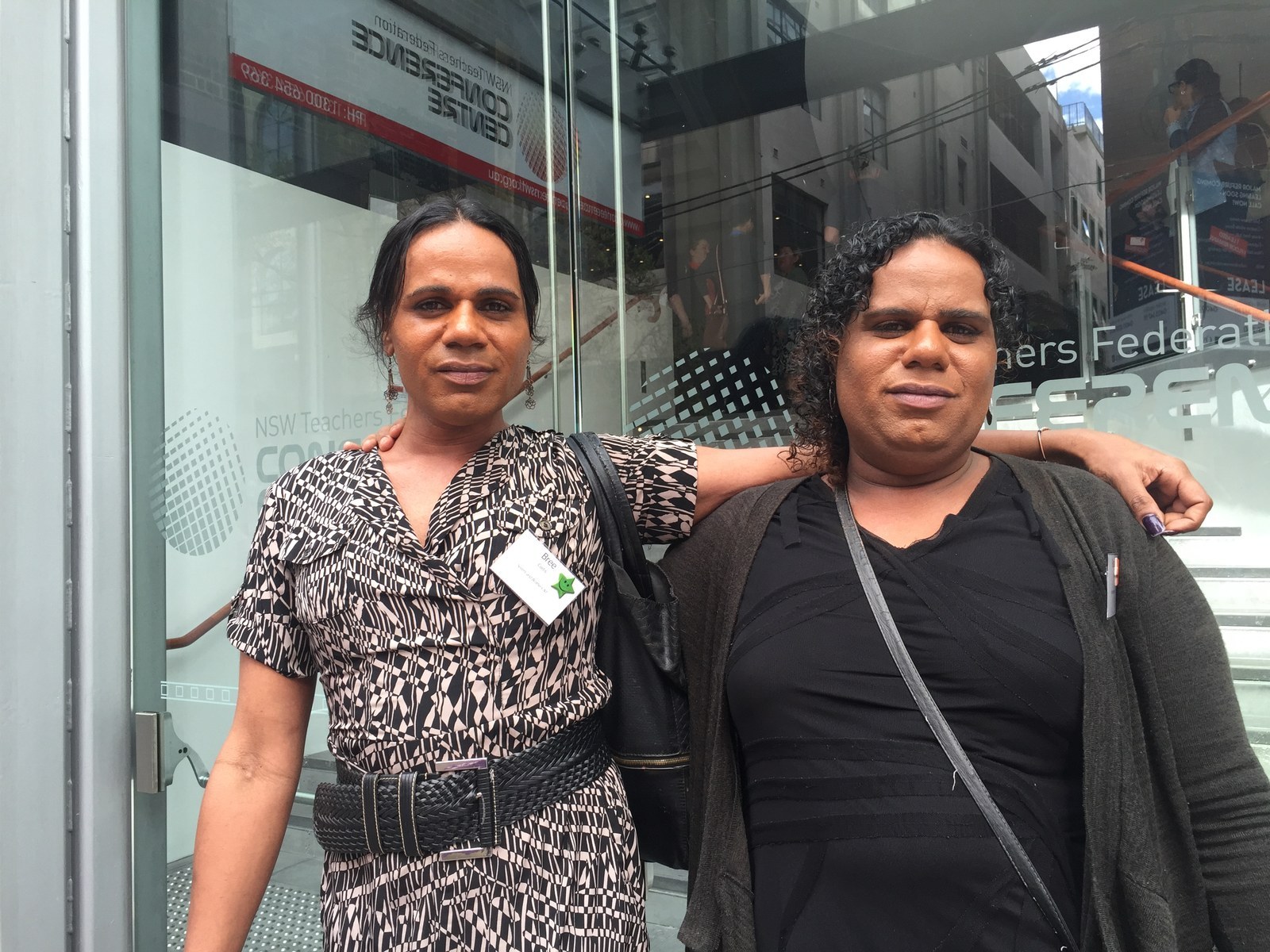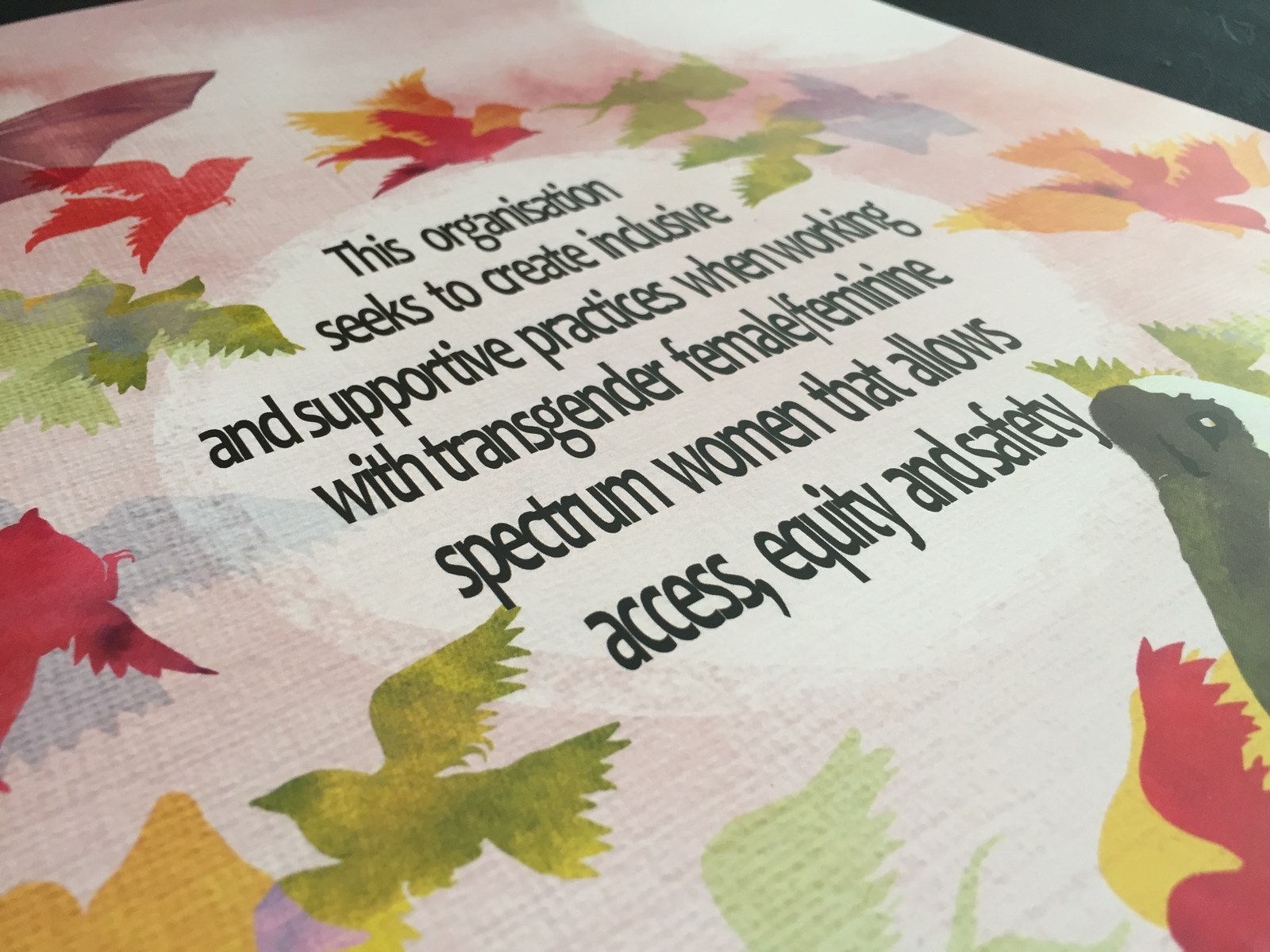
There was a point, Chantell Martin says, when she had “everything”.
Twelve years ago, the Sydney woman had a job, a unit, a car, a partner and good relations with her family. She even had two beautiful dogs. And then the deaths of two people close to her, one year after the other, pushed her into a downward spiral she couldn’t escape.
Telling her story to BuzzFeed News, Chantell is frank and supremely cheerful – her speech punctuated with the occasional burst of self-deprecating laughter as she talks about the lowest years of her life.
The relationship fell apart, Chantell says. She resigned, “before I got sacked”, and then lost the roof over her head. There was a stint living in her car, and then a period of couch-hopping, where she “burned a lot of bridges” with friends and family due to her use of the drug crystal meth.
Finally, all the temporary accommodation fell through and Chantell found herself trying women’s homelessness services. She was rejected for being transgender.
“They didn’t see me as a woman,” Chantell says. “They just said to me, ‘you can’t access this service because you’re not a woman’. And I thought, well, OK, fine. And I left.”
With nowhere to go, Chantell wound up in an illegal squat with a small group of trans women. They struggled financially doing sex work and abused drugs, scraping by on free meals from a Sydney crisis centre.
“Because we were all in the same boat, none of us could judge each other,” she says. “We were, more or less, just as fucked up as each other.”
Chantell’s story is one of many. There are no comprehensive statistics about the extent of homelessness among trans women in Australia, but social service providers say they are substantially overrepresented. One inner-city crisis housing centre in Sydney estimates 12% of its clients were trans women in the last year, while the number of trans people in the overall population is likely in the very low single digits. Several studies have indicated trans people are at high risk of unemployment, mental illness and substance abuse – all of which can contribute to homelessness.

For years now, chair of the Sydney Women’s Homeless Alliance Jamie Rullis has been pushing for services in NSW to reform the way they interact with transgender women. A seasoned frontline crisis worker with ten years experience in the homelessness sector, she says “trans women are women, full stop,” more than once in an interview with BuzzFeed News.
According to Rullis, the factors driving transgender women into homelessness are best described as a “spiral of trauma”. Harassment, discrimination and misunderstanding can eat away at a person’s ability to navigate daily life, she says. “You don’t just end up homeless – there are a number of social, psychological factors that come into that.”
BuzzFeed News met with Rullis and her colleague Fiona Murray, another experienced frontline worker, in a bare office room at Sydney’s Haymarket Centre. The centre is unusual in that it takes in clients who are abusing alcohol and drugs, something many other services do not tolerate. It’s all about “dealing with complicated people”, Rullis says.
It's not a single-gender service, but the upstairs floor is reserved for women — including trans women. Clients stay in shared rooms, where single beds are divided by makeshift partitions, and there’s a room with three beds reserved exclusively for transgender women. They are always full.
In most refuges there are no reserved beds. And despite the fact many transgender women would feel unsafe in a mixed-gender service, Rullis explains, trying to get into a women’s-only service can be a fraught process for those who don’t look the part.
"If you are not a perceived, 100% woman, good luck getting in," Rullis says. “Way too often, as soon as the word [transgender] is even mentioned, it’s a quick ‘Oh no, this is not our expertise’.”
In NSW, the process is further complicated by exemption 126A, a clause in the anti-discrimination law that allows for the provision of women’s only services. According to anecdotal evidence, 126A has at times been interpreted to exclude trans women.
The exemption has important ramifications for women in the homeless system, providing a space where they can recuperate and feel safe. But restrictive laws making it difficult for vulnerable transgender women to present as a “perceived, 100% woman”, as Rullis puts it, is contributing to their exclusion.
In particular, Murray says, a fixation on trans women as “pre-operative” and “post-operative” comes into play. One of the requirements for changing the sex on a birth certificate in NSW is that you must have undergone a “sex affirmation procedure” in which the reproductive organs are surgically altered. Most Australian states carry this requirement, with the exception of the Australian Capital Territory.
It’s a classic catch-22, described Murray: to access women’s services, it’s possible you will be rejected unless you physically, or legally, present as a woman. But doing this, more often than not, requires an expensive, lengthy process complete with undergoing surgery, wrangling bureaucracy and navigating the health system – and that’s assuming the transgender person in question actually wants the physical changes required. For vulnerable people experiencing homelessness, it is just about out of the question.
“In theory it can happen. But in practice – and especially for people who are already quite disadvantaged, or don’t have the money – it’s a lot of effort,” she says.
Legal experts despair of an antiquated system that makes life difficult for the most needy, disadvantaged people.
Stepan Kerkyasharian, president of the NSW Anti-Discrimination Board, says that if a person is presenting as a woman and indicates they identify as a woman, that should be good enough. “They should not be questioned further, they shouldn’t be doubted,” he says.
Asked about the possibility of legislative reform to ensure transgender women are included, Kerkyasharian said the Anti-Discrimination Act needs to be reviewed. “Some of the definitions were put in the act 30 years ago,” he said. “They need to be looked at again in the light of the current situation, the broader acceptance of issues in society.”
Beyond 126A, Rullis and Murray say the internal policies of shelters across Australia can be changed to better welcome trans women. Identity documents and forms can be difficult to navigate, says Murray, and having staff trained in gender sensitivity could help avoid women being misgendered or turned away.
NT Brothers and Sisters, an advocacy group for Indigenous transgender people, successfully lobbied the Alice Springs Women’s Shelter in central Australia to adopt trans-inclusive policies, starting from January this year.
“The Alice Springs Women’s Shelter have accepted the policy that trans women are women, and they are not allowed to refuse them service,” representative Bree Curtis told BuzzFeed News.

After a period of squatting, Chantell sought help from The Gender Centre, a charity for the transgender and gender diverse community. After a brief period of sobriety, she plunged back into addiction, broke her agreement with the centre, and was asked to leave. “They made these allowances for me, they made huge allowances for me,” she says.
“They had no choice but to discharge me.”
But instead of giving up on Chantell, The Gender Centre stayed in touch, encouraging her to enter a long-term rehab to try and kick her ice habit for good. The enduring message, says Chantell, is that they treated her illness – not her gender.
After past services had palmed her off, putting her in the “too hard basket” because of her gender, having it seen as a non-issue was a welcome relief. “Even though it was The Gender Centre, they never made it about my gender. It was, “Oh god, you need to fix up your drug habit,” she says. “I had a lot of problems, but being transgender wasn’t one of them!”
Rullis said in many frontline services, the first-contact staff can’t see past a person’s transgender status.
“People think being transgender is the primary issue why someone is homeless and has mental health issues,” she says. “But it’s actually nothing to do with their identity.”
According to the NSW government, a number of factors determine the support a person receives, with the main focus on assistance that “best meets their needs”.
There’s also information for staff on how to appropriately deal with transgender and other queer-identifying clients in the FACS housing services guidelines, but according to the experts interviewed by BuzzFeed News, a wider cultural change is required.

The barriers to housing faced by transgender women are large, but not insurmountable.
Advocates say services must treat the illness, not the gender – just as The Gender Centre was able to do for Chantell. Staff must be educated about gender diversity to a point where somebody being transgender can actually be a “non-issue”, says Rullis. Most importantly, trans women should not be turned away.
Chantell got clean after “going through hell” in rehab and started to rebuild her life slowly, step-by-step. She now works at the Sex Workers Outreach Project in Sydney, where her role is to provide resources, safety information and support to transgender sex workers. She can walk into a pub without drinking, be around drug using friends without shooting up. Life is good.
“I do have a roof over my head now, and I do have food in my fridge. I have beautiful friends in my life. I have a beautiful dog, who gives me unconditional love. My life just gets better and better,” she says.
“I’m still working on myself. But I’m just really proud to be here.”
